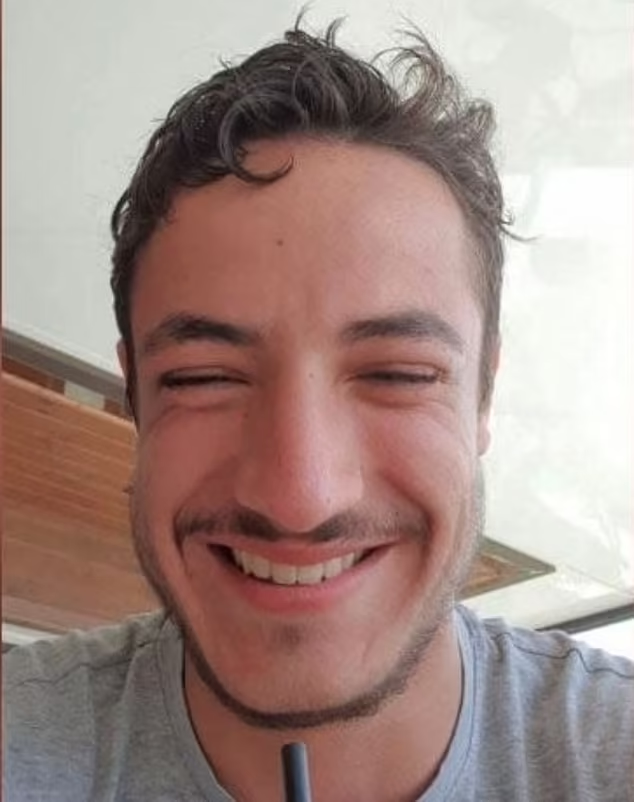The tragic story of Mathieu Vigier Latour, a 24-year-old student from France, highlights the darker side of medical tourism. In his quest for a more defined beard, Latour traveled to Turkey for a seemingly simple beard transplant procedure. However, the aftermath turned into a harrowing experience that ultimately led him to take his own life. His father revealed that the procedure was performed by an estate agent pretending to be a surgeon. This heartbreaking event sheds light on the dangers associated with low-cost medical procedures abroad, particularly in countries like Turkey, which has become a popular destination for cosmetic surgeries.
The Appeal of Medical Tourism for Cosmetic Surgeries

Why do so many people choose to travel abroad for cosmetic procedures? Cost is the main driver. In Latour’s case, the beard transplant in Istanbul cost €1,300 ($1,400), a mere fraction of the price in France. With attractive pricing, many people overlook the potential risks and jump at the opportunity to get an affordable transformation. Turkey is a well-known hub for hair and beard transplants, offering thousands of clinics that claim to deliver high-quality results at low prices. Yet, the hidden costs of these “budget” surgeries can be devastating, as Latour’s case tragically demonstrates.
Beard Transplants: Understanding the Procedure
A beard transplant involves transplanting hair follicles from one part of the body, typically the scalp, to the face to create a thicker, fuller beard. For many men, achieving a strong beard is tied to self-confidence and masculinity. However, while the procedure seems simple, it requires precision and expertise. Errors during the transplant, such as misplaced grafts or improper angling, can result in an uneven appearance, unnatural growth, and severe physical discomfort.
Latour’s procedure reportedly involved transplanting 4,000 grafts, but nearly 1,000 were lost during the operation. The result was a patchy, uneven beard with hair growing in odd angles, resembling a “hedgehog,” according to his father. This situation not only caused physical pain but also deeply impacted Latour’s mental well-being, illustrating the significant consequences of a poorly executed cosmetic procedure.
The Consequences of Unqualified Surgeons in Medical Tourism
The most alarming part of Latour’s story is that the person who performed the surgery was not a qualified surgeon but an estate agent masquerading as one. In countries like Turkey, where regulations around cosmetic surgery can be less stringent, it is easier for unlicensed individuals to operate under the guise of being medical professionals. This lack of proper certification and oversight can lead to severe health complications, as seen in Latour’s case, where he also suffered burns and post-operative discomfort.
The problem isn’t exclusive to Turkey; similar stories have emerged from other popular medical tourism destinations, including India, Mexico, and Thailand. Patients are often unaware of the qualifications of their surgeons, lured by low costs and glossy marketing that masks the real risks involved.
Mental Health Implications of Botched Cosmetic Surgeries
Latour’s case underlines another critical issue: the mental health repercussions of botched cosmetic procedures. After the disastrous transplant, Latour was reportedly devastated by the results and experienced severe body dysmorphic disorder (BDD). BDD is a mental health condition characterized by an obsessive fixation on perceived flaws in one’s appearance. The failed beard transplant, along with the realization that it was performed by a fraud, triggered a downward spiral for Latour. Despite efforts to correct the damage in Belgium, the psychological toll proved overwhelming.
His father mentioned that Latour struggled with post-traumatic stress and could not break free from a “vicious circle.” The combination of physical scarring, distorted self-image, and psychological trauma ultimately led to his tragic decision to end his life.
The Role of Awareness in Preventing Tragedies
'A young Frenchman took his own life after a botched beard transplant in Turkey performed by an estate agent posing as a surgeon.' https://t.co/IedEOG9dZR
— Paul Litterick (@fundypost) October 28, 2024
Latour’s father now aims to raise awareness about the perils of low-cost medical tourism and the importance of verifying a surgeon’s credentials. The incident serves as a somber warning to others who might consider traveling abroad for cheaper procedures without thoroughly vetting the clinics and doctors involved. It’s crucial to remember that opting for low-cost medical treatments can sometimes come with high risks.
In many cases, patients are not fully informed about the risks, potential complications, and qualifications of the surgeons. Stories like Latour’s should encourage potential patients to research thoroughly, verify certifications, and, if possible, consult with healthcare professionals in their home country before making any decisions about going abroad for surgery.
Conclusion: Lessons Learned from a Heartbreaking Loss
🇫🇷🇹🇷 Mathieu, 24 ans, a mis fin à ses jours dans sa chambre d’étudiant à Paris à cause d’une greffe de barbe ratée en Turquie.
— LMS Radio, La Musique Star (@LAMUSIQUESTAR) October 25, 2024
Source BFM TV pic.twitter.com/FOo2LXNdMS
The tragic outcome of Mathieu Vigier Latour’s beard transplant should not be in vain. It is a stark reminder of the potential dangers of medical tourism and the devastating consequences of trusting unqualified practitioners. This story emphasizes the importance of prioritizing safety and quality over cost when considering any medical procedure, whether at home or abroad. While the allure of cheaper surgeries can be strong, it is crucial to remember that your health, appearance, and overall well-being are invaluable—no savings are worth compromising them.
Latour’s father’s mission to raise awareness about such risks is both poignant and urgent. For those contemplating cosmetic surgery abroad, it’s essential to ask the tough questions, check credentials, and think twice before pursuing the “cheaper” route. After all, when it comes to your body and mental health, the cost of a mistake can be far greater than the initial savings.


